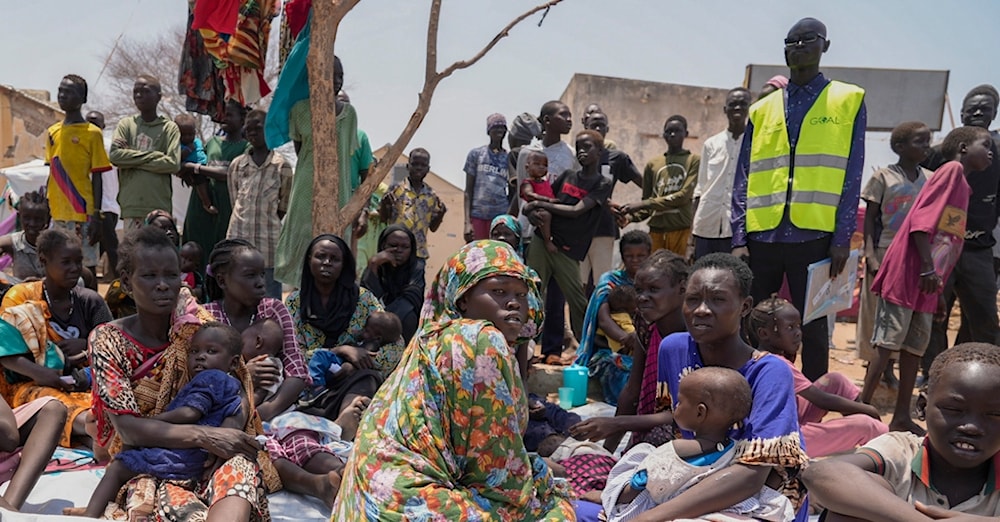Sudan threatened by world’s deadliest famine in 40 years
US envoy to the UN, Linda Thomas-Greenfield, underlines that "this is the largest humanitarian crisis on the face of the planet."
-

South Sudanese who fled from Sudan sit outside a nutrition clinic at a transit center in Renk, South Sudan, May 16, 2023. (AP)
Sudan is facing a potential famine that could be the worst the world has seen since Ethiopia's crisis 40 years ago, US officials have cautioned, as aid deliveries remain blocked by warring factions, while arms supplies to both sides continue unabated.
Sudan stands as the world's most severe humanitarian crisis, inching toward a disaster of historic magnitude with minimal media coverage and international concern. A UN humanitarian appeal for Sudan has received just 16% of the necessary funds.
"We need the world to wake up to the catastrophe happening before our very eyes," Linda Thomas-Greenfield, the US envoy to the United Nations.
Her remarks came as the city of el-Fasher, North Darfur's capital and a former humanitarian hub, endured its second month under siege by the paramilitary Rapid Support Forces (RSF).
The group has been battling the Sudanese Armed Forces (SAF) since April 2023, following a power struggle between SAF’s Abdel Fattah al-Burhan and RSF’s Mohammad Hamdan Dagalo, known as Hemedti.
The ongoing war has so far claimed 14,000 lives and displaced 10 million people.
On Thursday, the UN Security Council passed a UK-drafted resolution demanding an end to the el-Fasher siege. However, fighting intensified on Friday, with the SAF claiming to have repelled a major RSF attack, causing "huge losses".
Samantha Power, head of the US Agency for International Development (USAID), expressed concerns about the fate of those sheltering in el-Fasher if the RSF seized the town.
"The RSF is on the march, and where the RSF has gone in the Darfur area historically, and in this conflict, mass atrocities have followed," Power emphasized.
She announced on Friday $315 million in new US humanitarian aid for Sudan but noted that little of it was reaching isolated communities.
The official accused the RSF of "systematically looting humanitarian warehouses, stealing food and livestock, destroying grain storage facilities, and wells in the most vulnerable Sudanese communities."
At the same time, Power mentioned that "the SAF completely contradicts its commitments, and its responsibilities to the Sudanese people by having shut down cross border access from Chad at the Adre crossing, which is the main route for assistance to enter the Darfur region."
She argued that SAF chief al-Burhan could open the Adre crossing with "a stroke of the pen."
The SAF has proposed an alternative access point from Chad, the Tine crossing, but American officials have indicated that it is already obstructed and insufficient for the population's needs, and it will become impassable with the approaching rainy season.
Power considered that "the really clear message here is that it is obstruction, not insufficient stocks of food, that is the driving force behind the historic and deadly levels of starvation in Sudan."
She highlighted that current data suggests the crisis is "comparable to and potentially worse" than the 2011 famine in Somalia, which killed a quarter of a million people.
"I would add that the most worrying scenario would be that Sudan would become the deadliest famine since Ethiopia in the early 1980s," which, according to the UN, killed a million people.
Thomas-Greenfield underlined that "this is the largest humanitarian crisis on the face of the planet. And yet, somehow, it threatens to get worse."
Read more: Sudan faces severe water crisis amid war, soaring temperatures

 4 Min Read
4 Min Read








